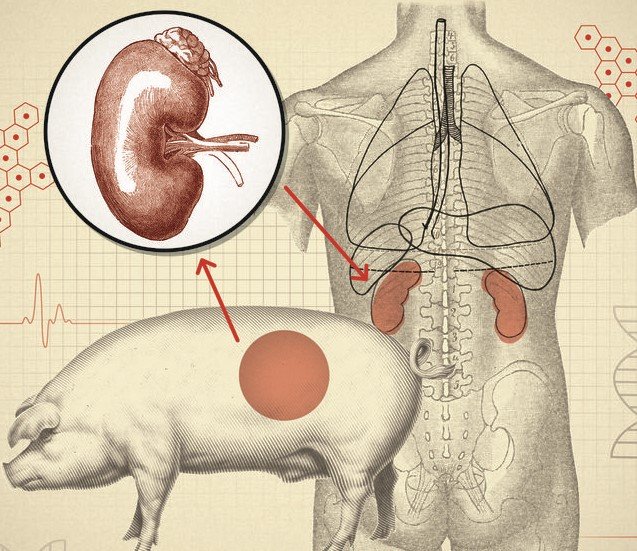In an extraordinary medical breakthrough, surgeons at Massachusetts General Hospital in Boston have achieved a landmark by performing the world’s first kidney transplant from a genetically modified pig to a human recipient.
This historic event, conducted on March 16, signifies a remarkable advancement in the quest to enhance accessibility to organ transplants for patients in critical need.
The fortunate recipient of the pig kidney is Richard Slayman, a 62-year-old resident of Weymouth, Massachusetts, who has been grappling with end-stage renal disease.
Following the successful four-hour surgery, Mr. Slayman is undergoing a smooth recovery process and is anticipated to be discharged from the hospital imminently, as indicated by a statement from Massachusetts General Hospital.
This pioneering transplant has sparked widespread interest among medical professionals, particularly concerning its long-term effectiveness and implications. Dr. Jim Kim, the director of kidney and pancreas transplantation at the USC Transplant Institute in Los Angeles, underscores the necessity of closely monitoring the patient’s progress to evaluate the success of this groundbreaking interspecies transplant.
Notably, Mr. Slayman had previously undergone a human kidney transplant at the same hospital in 2018, following seven years of dialysis. Regrettably, the transplanted organ failed after five years, leading to a return to dialysis treatments.
The kidney utilized in this innovative procedure was generously provided by eGenesis, a Cambridge-based company specializing in genetic pig editing. The donor pig underwent precise genetic modifications to eliminate genes potentially harmful to human recipients and integrate specific human genes to improve compatibility. Furthermore, eGenesis deactivated pig-inherent viruses that could pose infection risks to humans.
Before the human transplant, kidneys from genetically edited pigs had already been transplanted successfully into monkeys, with some animals surviving for prolonged periods, as highlighted in an October study published in the journal Nature.
To minimize the risk of organ rejection, the patient received a regimen of medications, including an experimental antibody named tegoprubart, developed by Eledon Pharmaceuticals.
Dr. Robert Montgomery, the director of the NYU Langone Transplant Institute, applauds the surgery as a significant leap forward in xenotransplantation, the domain of transplanting organs or tissues between different species. Although not directly involved in the case, Dr. Montgomery accentuates the transformative potential of such procedures in addressing the critical scarcity of donor organs for transplantation.
The successful transplantation of a pig kidney into a human underscores the promising trajectory of organ transplantation and offers a beacon of hope to countless individuals awaiting life-saving treatments globally.


